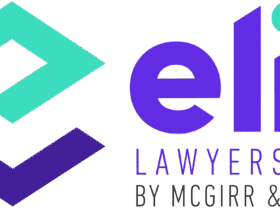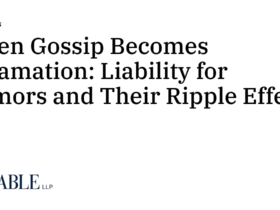The Supreme Court of New York recently denied a motion to seal the record in the case of Choi v. Solomon, stating that “harsh words are not a basis to seal a case, especially where it appears both sides have no qualms about tearing each other down.” Decision and Order on Motion at *4, Choi v. Solomon, No. 001-654666 (Sup. Ct. N.Y. November 6, 2020).
The case was brought by Yukyung Choi against Scott Solomon for ten different causes of action, including intentional infliction of emotional distress, breach of contract, and defamation. Choi claims that from 2010 to 2019, she lived with Solomon in a platonic relationship, paying for their apartment without contribution from Solomon and supporting his “lavish personal expenses.” Id. at *1. The relationship eventually deteriorated and Choi sought to distance herself, and additional plaintiff Eric Reiner, from Solomon.
To this end, the parties entered into an agreement in November of 2019 to “wind down their relationship,” under which Solomon would be permitted to use Choi’s apartment until April 2020, would have his cell phone bill and health insurance paid for by Choi, and would receive $9,500 in direct financial support. Id. at *2-3. After Solomon allegedly violated the agreement, Choi and Reiner filed their complaint. They then moved to seal the record, claiming that Solomon had “shown he would make numerous and damaging assertions against plaintiffs that would harm their reputations.” Id. at *2. They further accused him of “using [the] Court as a means of delivering revenge.” Id. at *3.
As in many jurisdictions, New York requires a showing of good cause to seal the record, as there is a “presumption that the public is entitled to access to judicial proceedings and court records.” Id. at *3, citing Mosallem v. Brenson, 76 A.D. 3rd 345, 348 (N.Y. App. Div. 2010). This presumption, established under both section 4 of the Judiciary Law and New York common law, “requires that…the sittings of every court within [New York] state shall be public.” Mosallem at 348, N.Y. Judiciary Law §4 (McKinney).
The good cause standard was not met in Choi. In denying the motion to seal, New York County Supreme Court Judge Arlene P. Bluth identified an easily accessible alternative available to the plaintiffs that would have offered them the shield from public scrutiny they sought – they could have included a private dispute resolution provision in their November 2019 agreement. The ease with which plaintiffs could have avoided public scrutiny, coupled with their own insults toward defendant (their complaint referred to Solomon using a variety of derogatory terms), led the court to hold that New York’s preference for public access would stand.
As stated by the court, “confidentiality is clearly the exception, not the rule.” Id. at *3.















